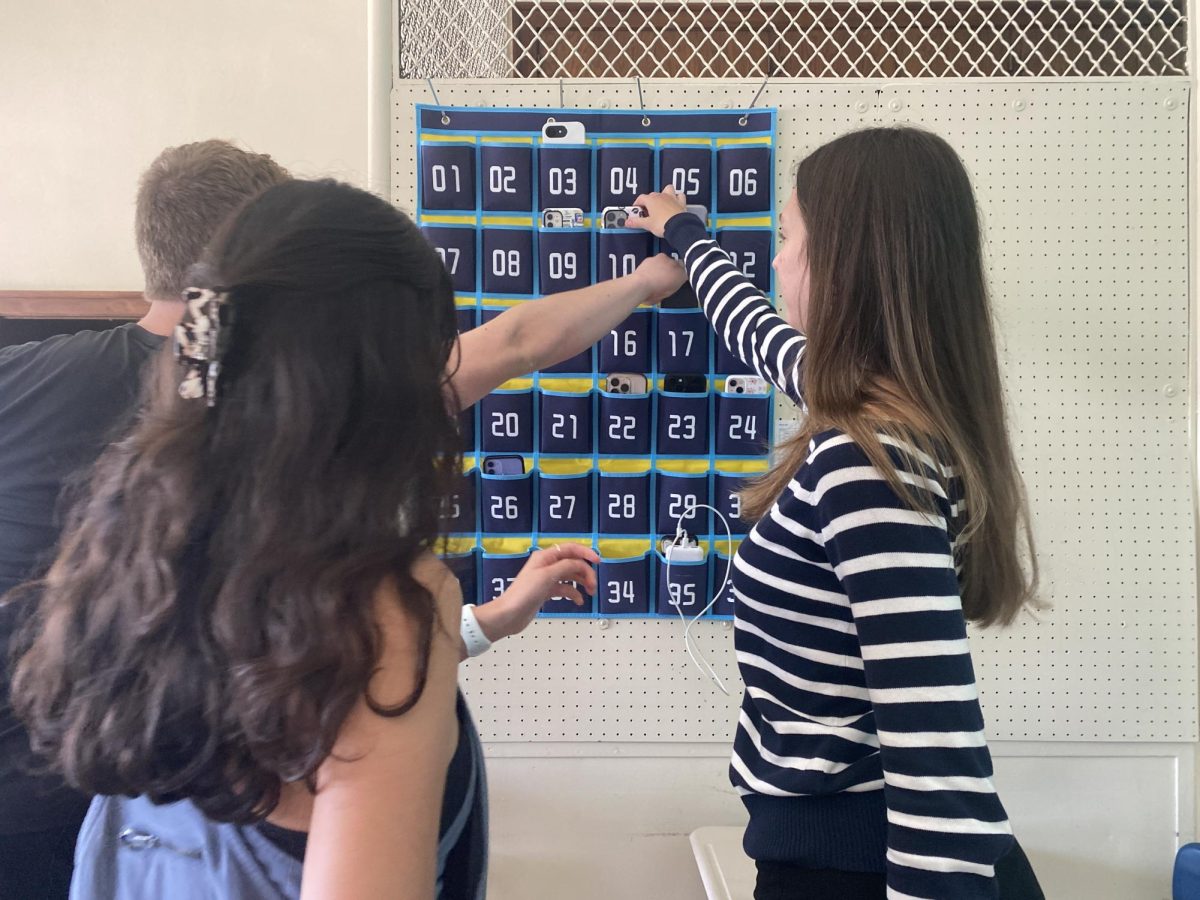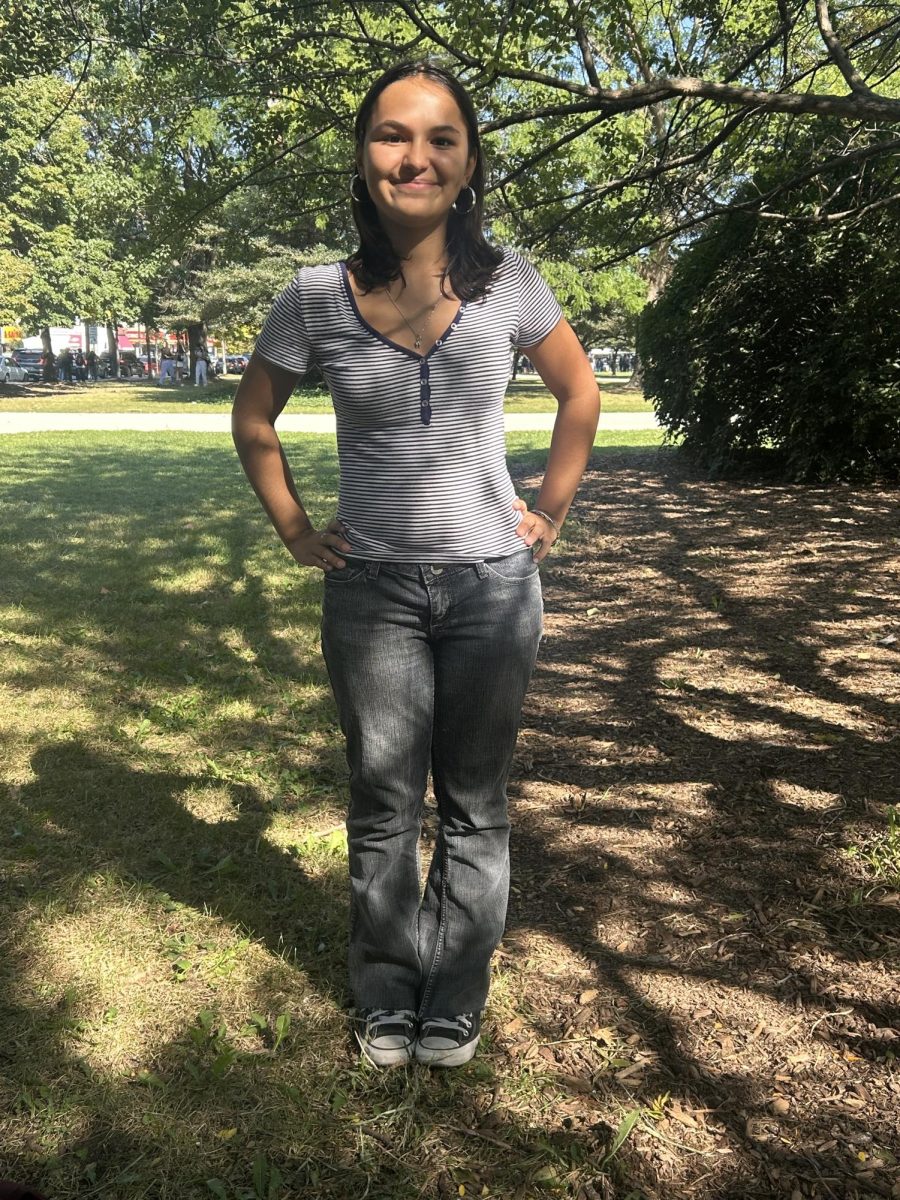By Agnieszka Chrzanowska
Niccole Ortiz, Div. 279, did not think a public high school education had a price tag. Going to school is supposed to be free, but what disappeared from her wallet over the course of four years tells a different story.
“There’s a reason I’m not going to a private school,” Ortiz said, angry that she can hardly afford to pay for a “public” education.
A public education is supported by public funds allowing students to go to school for free. Even so, Chicago Public Schools (CPS) often develops a need for extra funds. In today’s harsh economic climate it seems everything has a price.
Ortiz has a school debt of about $400. With her single mother supporting six other children, the cost of Ortiz’s education is often an issue.
“I have been in debt since freshman year with my standard fee. It’s not that easy to pay everything off on time,” Ortiz said.
Two years ago, Ortiz filed a lunch form but was denied free or reduced lunch. The lunch form is also used as an indicator of how much the student will pay for other school-related fees. Students who have a free or reduced lunch status are eligible for AP and college application fee waivers.
“We have no say in how the [lunch] status is generated. If someone is not happy with their status they can come back and fill out another lunch form,” said Ms. Rzadzki, Business Manager in the Budget Office.
Students can also apply for a standard fee reduction in the Budget Office if they cannot afford the $195 fee.
Decisions handed down from the Budget Office are often perceived by students as unfair. However, it has very little say in where and how the standard fee money is used.
“I don’t have anything to do with the choices,” Rzadzki said. “The LSC [Local School Council] ‘okays’ the $195 standard fee, not me. We are one of the cheapest selective enrollment schools in Chicago.”
Walter Payton College Prep’s standard fee ranges from $275 to $360, depending on whether the student is a freshman or a senior. These prices do not include extraneous purchases like AP class fees.
The collected standard fee at Lane is put into a separate fund away from any other money. The money in that fund can only be used for the assigned items listed on the Standard Fee Statement. Some things on this list include: fees for biology, computer education, counseling, handbooks, library maintenance, physical education, ROTC, and testing.
Lane also receives money from CPS. The amount given out by CPS is based on school size. This money is used to help pay for maintenance and supplies. Since Lane is so large, the funds from CPS cannot cover all school costs. This leaves students paying for part of their education.
A huge cause of rising debts at Lane is when students return text books late or not at all. When a student does not return a book, the original price of the book is added to the student’s debt. Since book prices have risen, Lane replaces the lost book at a higher cost than the amount billed to the student. Lane loses money in the transaction.
“Seniors want to return books from their freshman year. By that time, we have already replaced the books using school funds,” Rzadzki said. “The school is in the hole.”
“When books are brought back to school on time, money does not need to be used to renew them. The money can be used for something useful,” Rzadzki said.
Gabriel Mendoza, Div. 273, is one of the students who has not yet returned one of his books. Mendoza lost a geometry book sophomore year that has still not been retrieved, but this is not all that is jacking up his $700 school debt.
“I have unpaid standard fees from sophomore, junior, and senior year,” he said.
Mendoza’s family makes enough money to buy only necessities, which is problematic for Mendoza. He knows he will be able to pay off his debt eventually, but also understands it will not happen overnight.
Mendoza not only worries about his current debt, but finds senior year especially stressful. Prom, senior luncheon, senior fee, and other senior expenses all contribute to the monetary issues.
“It all adds up,” Mendoza said. “I try not to think about it, but how will I afford all these things? It’s bull sugar.”
The annual transportation fee, which pays for an athlete’s transportation costs from Lane, has also been a major problem for Mendoza.
“I’m an athlete,” he said. “I run cross country and track and have almost been kicked off my teams because I couldn’t pay the fee at one point.”
Since sports are one of Mendoza’s priorities, he paid his transportation fees but continues to put aside other debts until he can come up with more money.
Mendoza mentioned that another “big hit on students,” was the CPS budget cut a year ago that eliminated various extracurricular activities and sports. Athletic teams, consequently, have been left to pay for more of their own expenses.
“Money doesn’t buy happiness but it sure can help,” Mendoza said. “We need to pay to get involved in school. If we don’t get involved we won’t have experience in the real world.”
Last year in May, students organized rallies in downtown Chicago to save their education and their wallets. Part of the problem was their own expenses rising because of the lack of CPS funds for books, supplies, and teachers salaries. The other part of the issue was what they would be denied in the educational world.
“We shouldn’t have to pay to learn. There’s enough money to fund our schools,” said Juan Martinez, Div. 261. “Our state ‘leaders’ just choose to use the money for other things. [Students] shouldn’t have to pay at all if they’re getting amazing scores and doing the best they can do in their high school environment.”





